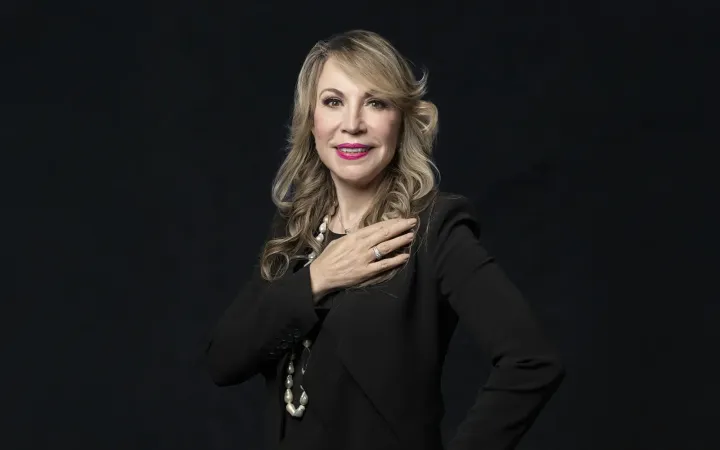
Por Sonia Garza González, Presidenta Nacional de la Asociación Mexicana de Mujeres Jefas de Empresa (AMMJE), Consejera Nacional de COPARMEX, de COPARMEX NL y de CAINTRA NL. Seleccionada por segundo año consecutivo como una de las 100 Mujeres Poderosas de los Negocios por la revista Expansión.

Un tema que me resuena desde hace varios días es la autonomía económica de las mujeres en el mundo y en nuestro país, debido a que resulta fundamental, en la medida en que nos permite ampliar nuestras posibilidades de desarrollo productivo, personal y familiar.
Más allá de tener la capacidad para generar ingresos propios, a través de un trabajo remunerado, la autonomía económica también implica -para mí- la capacidad de usar libremente esos recursos para cubrir necesidades de alimentación, vivienda, salud y bienestar en general, incluyendo la libertad de movilidad social y cambiar de entorno cuando lo deseemos o lo requiramos.
En este contexto, la situación contraria de la autonomía económica es la dependencia económica, la mayoría de las veces con duras batallas familiares o existenciales, por tener esa limitante de generar ingresos propios o suficientes. No olvidemos que con la pandemia de Covid-19, durante los primeros periodos de confinamiento, hubo diversas crisis a nivel global que justo repercutieron para que muchas mujeres no pudieran avanzar hacia dicha autonomía, a causa de recortes salariales, despidos o abandono de empleos, para cuidar a los hijos o familiares enfermos.
Otra lamentable crisis que no debemos ignorar, por los efectos presentes y futuros, tiene que ver con la deserción escolar en distintos niveles educativos, por la falta de solidez familiar o porque adolescentes o jóvenes también tuvieron que ayudar al trabajo de los cuidados. ¿Qué les depara a estas infantes y adolescentes en el futuro? Tanto su “autonomía” económica como sus derechos apuntan a que serán limitados y ese panorama resulta desde ya muy lamentable.
Estos dos ejemplos ponen de relieve un déficit en la autonomía económica de miles de mujeres al no poder decidir libremente cómo usar su tiempo, generar ingresos y disponer de ellos en igualdad de condiciones que los varones. La situación es mayormente compleja para las mujeres con otras condiciones de vulnerabilidad, aquellas que se ven en la enorme tarea de gestionar la doble o triple jornada: el trabajo remunerado (a menudo precario y con remuneración baja) y el no remunerado, que debe realizarse y gestionarse con la insuficiencia de recursos.
Pese a que me desarrollo en el ámbito empresarial y todos los días me relaciono con mujeres líderes y generadoras de economía, de verdad no alcanzo a comprender por qué a las y los tomadores de decisiones les cuesta tanto analizar y sensibilizarse ante las enormes pérdidas por la falta de oportunidades en igualdad de circunstancias (acceso al ámbito productivo, sin brecha salarial, oportunidad de ascensos, etc., etc.).
Urge que todos los Poderes (Ejecutivo, Legislativo y Judicial), la iniciativa privada, las instituciones académicas, de salud, los medios de comunicación, las familias asuman un rol protagónico para garantizar el derecho de todas las personas a cuidar y ser cuidadas. Urge que las responsabilidades de cuidado dejen de ser invisibilizadas y feminizadas.
Según datos del Instituto Nacional de Estadística y Geografía, en 2021, cada mujer realizó trabajos de cuidado no remunerado en los hogares equivalentes a 71 mil 524 pesos anuales. Por su parte, cada hombre realizó este tipo de trabajos por un equivalente de 28 mil 831 pesos, aportando las mujeres 2.6 veces más valor económico que los hombres en cuanto a las labores de cuidado doméstico y dedicando 3 mil 417 millones de horas semanales al trabajo doméstico sin recibir remuneración alguna.
¿Cómo darle la vuelta a estas cifras de alarma?, ¿cuáles son las propuestas de los flamantes políticos que están “trabajando” en competir en las próximas contiendas electorales?, ¿qué botón de pánico hay que inventar para dar auxilio a las mujeres en materia de autonomía económica?
Las opiniones expresadas son responsabilidad de sus autoras y son absolutamente independientes a la postura y línea editorial de Opinión 51.
Más de 150 opiniones a través de 100 columnistas te esperan por menos de un libro al mes.






Comments ()